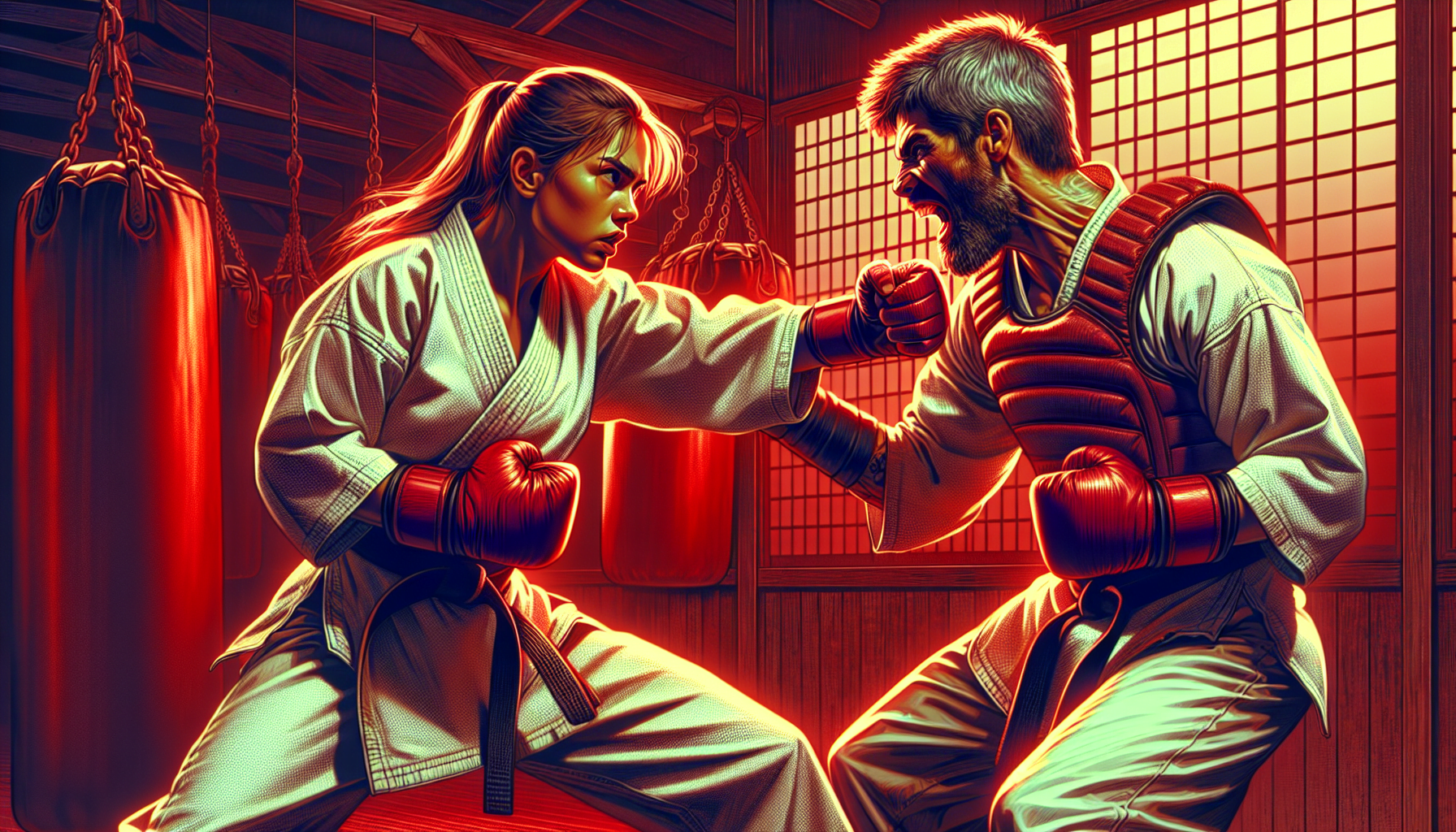Improving after a poor first sparring session is all about reflection and practice. Imagine stepping into the ring, the smell of leather and sweat mingling in the air, only to find your carefully honed techniques unraveling punch by punch. It’s a common rite of passage, a shared stumble on the path to boxing prowess.
This isn’t just a setback; it’s a goldmine of lessons waiting to be unearthed. I’ve been there, gloves heavy with the weight of disappointment, yet each misstep taught me something invaluable.
Together, we’ll unpack these lessons, turning yesterday’s misfires into tomorrow’s masterstrokes.

Analyzing Your Experience: Lessons from Your First Sparring Session

Reflecting on the Ring: Why Your First Sparring Matters
You stepped into the ring for the first time. Gloves on, heart racing. It didn’t go as planned. That’s okay. Every boxer has been there. Reflecting on this experience is necessary. It’s not just about the punches you landed, but also about the ones you didn’t. Think about what worked. Maybe your jab was sharp. Perhaps your defense needs work. This is how you grow.
Seeking Wisdom: The Value of Feedback
After the bell rings, seek out your coach. Their eyes caught things you missed. They’ve seen countless first spars. They know the ropes. Ask them. Listen. Then, turn to the more experienced fighters. They were once in your shoes. Their advice is gold. They’ll point out the subtleties – the footwork, the timing, the technique. Absorb it all.
Technique Triumphs: Honing Your Skills
Technique is your foundation. Without it, strength means little. Focus on your footwork. It’s the dance of boxing. It positions you, keeps you balanced, ready to strike or evade. Then, there’s your punch technique. Are you turning your hips? Are your fists returning to guard? These details matter. They turn a bad spar into a good fight.
Footwork Criticals: The Art of Movement
Boxing is an art, and your canvas is the ring. Your feet paint the picture. If your first spar felt clumsy, it’s often the footwork. Drill it. Shadowbox. Watch the pros. See how they glide, pivot, advance, and retreat. It’s poetry in motion. Make it your poetry.
Building from the Bottom: Next Steps After a Tough Start
You’ve had a rough spar. It’s a single step in a marathon. Now, build. Work on your weaknesses. Strengthen your strengths. Spar again. And again. With each round, you’ll find your rhythm. You’ll anticipate better, move smarter, punch sharper. .
Embracing the Learning Curve: Tips for Progressing After a Poor Spar

Stay Relaxed: The Key to Recovery and Growth
You’ve had a tough spar. It’s natural to feel tense, but tension is the enemy of progress. To improve, you must relax. Think of sparring as a dance, not a brawl. When you’re relaxed, your movements become smoother, your mind clearer. In your next session, focus on staying loose. Breathe deeply. Let your shoulders drop. With each exhale, imagine tension leaving your body. This isn’t just about comfort-it’s about control. A relaxed boxer is a responsive boxer.
Technique Triumphs: Sharpen Your Skills
Technique is your foundation. After a poor spar, dissect your performance. What went wrong? Were your punches telegraphed? Was your footwork sluggish? Return to the basics. Shadowbox in front of a mirror. Watch your form. Correct it. Drill your punches until they’re second nature. Practice footwork until you can glide across the ring.
Pace Yourself: Endurance is Earned
Sparring is a marathon, not a sprint. If you burned out quickly, it’s time to work on your pacing. Start with round-by-round goals. In round one, focus on defense. In round two, pick up the pace. By round three, find a balance. Outside the ring, incorporate interval training into your workouts. This will boost your stamina. In the ring, it translates to sustained energy. Pacing is about knowing when to explode with energy and when to conserve it.
Variety in Partners: A Spectrum of Challenges
Every sparring partner is a new puzzle to solve. Don’t stick to the familiar. Spar with the fast, the strong, the tactical. Each one will teach you something different. The fast will hone your reactions. The strong will test your defense. The tactical will sharpen your mind. Embrace the variety. It’s like cross-training for boxers. You adapt, you overcome, and Hence, you become a more well-rounded fighter.
Reflect and Reset: The Path to Improvement
Reflection is required. After each spar, take a moment. What did you learn? What can you do better? Write it down. Set goals for your next session. Maybe it’s to land a specific combo or to maintain your guard better. Then, reset. Leave the past spar in the past. Each new session is a fresh start. Improvement is a continuous journey, not a destination. Keep moving forward, one punch at a time.






